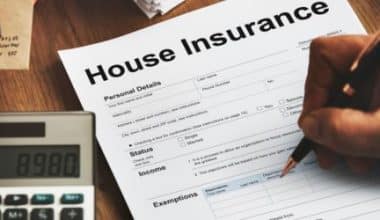It is crucial to purchase insurance for your Virginia home, whether you reside in Richmond, Virginia Beach, or any other location within the Old Dominion. When selecting a home insurance provider, it is important to consider the factors of cost, service, and client satisfaction in order to make the best decision. This guide provides comprehensive information on our best home insurance companies and the mobile Virginia homeowners insurance laws in Virginia.
Is Home Insurance Worth It?
You could lose your entire investment in the worst-case scenario. Maintaining your home insurance is a great way to make sure you can pay for the costs of repairing and/or replacing your home and valuables if a covered loss damages them.
The Best Home Insurance in Virginia
The best home insurance coverage in Virginia includes the following:
#1. Chubb
This could be a great option for homeowners in Virginia looking for all-encompassing policies. Chubb insurance coverage covers services like tree trimming after a storm, computer data recovery after a virus, and lock replacement when keys are lost or stolen. The extended replacement cost option available to homeowners includes coverage for renovations to bring a home up to modern building standards. Chubb, however, may have higher-than-average premiums because it focuses on high-value houses. According to J.D. Power’s latest domestic assessment, Chubb has below-average customer satisfaction.
#2. Amica
Its regular home insurance policies cover the basics, like damage to your home or possessions, as well as liability issues and loss of usage. Vandalism, sewage backup, sewage overflow, and computer coverage are all optional additions to a homeowner’s insurance policy.
#3. State Farm
Because it distributes its policies through a vast network of agents, State Farm is a wonderful option for homeowners who like personal interaction with their insurers. And its focus on customer service has paid off; the company has fewer consumer complaints to state authorities than expected for a company of its scale, according to the National Association of Insurance Commissioners.
State Farm customers who have house insurance can receive a Ting device at no cost. The Ting smart plug is a fire safety device that monitors your home’s electrical system.
#4. Farm Bureau
Farm Bureau has the best customer service in Virginia for homeowners, receiving only 2% of the usual number of complaints. Most Farm Bureau customers are content with the service they receive, judging by the low number of complaints.
The Farm Bureau’s annual premium is about a third lower than the state average, coming in at less than $900. Farm Bureau does not provide a lot of innovative ways to save money on homeowner’s insurance, but they do provide some conventional discounts like new house and bundling discounts. You can insure your house and possessions with Farm Bureau, just like you would with any other insurer.
#5. Travelers
If you possess a green home made from sustainable materials, Travelers could be a wonderful choice for your home insurance. Only this one provider on our shortlist promises money off for having a green home, and it’s a big one: up to 5% if your house is LEED-certified. After a covered loss, the cost of restoring or constructing your home with environmentally friendly substances may be significantly greater than it was before the incident.
Read also: BEST CHEAP CAR INSURANCE IN VIRGINIA FOR 2023
Is Homeowners Insurance Required in VA?
Insurance for your home is not obligatory by law in Virginia, but your lender may make you get it if you are financing your house. The coverage provided by our policy is specifically designed to protect your property and assets.
What Does Virginia Home Insurance Cover?
Virginia boasts natural beauty and wonders that make it an iconic state. Due to its favorable location in the mid-Atlantic region, Virginia offers its residents the opportunity to enjoy picturesque mountains, meandering rivers, and beautiful beaches. In addition to the state’s stunning natural beauty, there are also inherent natural risks such as fires, hurricanes, and severe winter storms. It is also important to note that although no insurance policy can provide coverage for every possible event, having the appropriate homeowners policy can help protect you financially in many common situations.
Mobile Home Insurance Virginia
Mobile home insurance typically includes property coverage, which provides protection for both the building and personal belongings of your mobile home against conceivable causes of damage in Virginia. Virginia mobile home insurance also provides liability coverage, which safeguards you from potential legal and medical expenses in the event that someone sustains injuries on your property. Mobile home insurance typically splits down into different parts that correspond to the different types of coverage it provides in Virginia. The typical coverage includes:
#1. Dwelling Coverage
If an insured peril damages your mobile home, dwelling coverage will pay up to the policy’s maximum to repair or replace the house’s structure. You should choose a maximum on this section of your insurance that is sufficient to fully replace your mobile home in the event of its total destruction. Purchasing extended replacement coverage might help lessen the blow of unexpectedly high rebuilding costs.
#2. Personal Property Coverage
Personal property insurance can replace or repair furniture, gadgets, and other items. Basic mobile home insurance provides coverage for the “actual cash value” of your belongings. The insurance company will reimburse you the market value of your items minus your deductible. Replacement cost insurance might help ensure that you get enough money to replace your belongings. Taking a home inventory is the best approach to finding out what your items are worth and the amount of personal property coverage you need.
#3. Structure of Your Mobile Home Coverage
Unless it says otherwise, your mobile home insurance will cover losses to your mobile home and any other buildings you own on the same property as the mobile home that has no relation to it. It explores a lot of different kinds of disasters, such as fires, storms with strong winds, lightning, etc. Most of the time, a standard mobile home insurance policy does not cover moving a mobile home.
You may want to see: WORKERS COMPENSATION VIRGINIA: The Ultimate Guide
Is Mobile Home Insurance Required?
Buying mobile home insurance is optional. Instead, mortgage lenders insist that borrowers purchase insurance to cover their shared investments. It’s also important to know that people who live in some mobile home parks have to have insurance.
Mobile home mortgage lenders will demand that you have homeowner’s insurance to safeguard your investment. The likelihood of a homeowner having tens of thousands of dollars to pay the bank over the course of the loan’s term in order to recuperate their investment in a completely ruined home is slim. The insurance company plays a significant role here by paying for all that has happened.
In addition, certain mobile home communities and parks may have a policy in place that mandates residents to have insurance coverage. Typically, one can enforce this requirement for liability purposes. If you do not have a mortgage lender or live in a community that mandates it, the decision to obtain insurance coverage for your mobile home is entirely yours. However, we strongly advise using protection. Your mobile home is a valuable investment, and it’s important to ensure that you have assistance available in case of a worst-case scenario.
Is Mobile Home Insurance More Expensive Compared to Other Types of Insurance?
Mobile home insurance can be just as expensive as, or even more than, regular home insurance, despite the less expensive purchase prices of mobile and manufactured homes. Mobile and prefabricated houses typically cost more to insure in states like Florida due to the increased risk of natural disasters.
Less insulation, a probable lack of foundation, smaller sizes, and more might make mobile homes more susceptible to damage than a typical house. Hence, because of this, the cost of insuring a mobile or prefabricated house might be comparable to that of insuring a traditional home in some places. This happens a lot in the southeast of the United States, where hurricanes and floods are very likely to cause damage.
Mobile home insurance can be significantly less expensive than standard homeowner’s insurance in some regions. Mobile homes tend to be smaller, so if they are in a safe, crime-free area, their insurance rates can stay low.
Virginia Homeowners Insurance Laws
Virginia law requires insurance companies to provide a clear explanation for their decision if they deny your application for a homeowners policy or choose to cancel or not renew your existing policy. Request the reasons for the refusal if insurance is denied. The insurance company must give you a copy of your file and let you amend any errors if they deny your insurance due to faulty information. You cannot be denied insurance based on your age, sex, home, race, color, belief system, national origin, lineage, relationship status, or legal vocation, such as military service.
Additionally, it is important to be aware that Virginia law prohibits insurance companies from discontinuing your owner-occupied homeowners’ policy, unless there are specific reasons, after the initial 90-day period. The cancellation law mentioned applies specifically to homeowners’ policies and does not extend to renters’ policies. An insurance company has the authority to choose not to renew your homeowners’ policy at the end of its term. They must provide you with a written notice at least 30 days before the expiration date of your policy. One can give this notice for any reason.
The company cannot deny the renewal of your policy based solely on factors such as your age, sex, home, ethnic background, religion, national origin, lineage, marital status, or legal occupation, including military service. The company cannot refuse to renew your policy solely because of a claim that is primarily due to natural occurrences. If an insurance company plans to cancel or not renew your homeowners’ policy, they are required to provide written notice. This notice should include the termination date as well as the reason for termination. Your right to appeal to the police commissioner and eligibility for the Virginia Property Insurance Association policy should also be noted.
How Much Is Homeowners Insurance in Virginia?
In Virginia, the average cost of homeowners insurance is $1,119, which is 31% less than the national average. However, it’s important to note that the actual rate you may receive can vary based on factors such as the value and age of your home, the types of insurance you choose, your claims history, and various other factors.
Why Is Homeowners Insurance Going Up So Much?
The amount of dwelling coverage included in your policy has a big influence on your premiums; this is the portion of your home insurance that covers rebuilding your home if it is damaged or destroyed. Higher rebuild costs as a result of inflation necessitate higher dwelling coverage limits to keep up with rising costs.
Who Has the Most Expensive Home Insurance?
Travelers are the priciest homeowners insurance company when it comes to covering dwelling amounts of $200,000 and $350,000.
Does Progressive Cover Virginia?
Progressive takes pride in providing service to numerous homeowners in Virginia. If you are a homeowner in Virginia or are planning to buy a home in Virginia, it is recommended that you review the insurance policies, discounts, and rates information offered by Progressive for home insurance in the Old Dominion state.
What Insurance Is Mandatory in Virginia?
Liability insurance is a legal requirement in the state of Virginia. Liability insurance covers the costs of bodily injuries and property damage caused to others in an accident where you are at fault. Additionally, this coverage can also provide compensation for lost wages and discomfort.
Is Homeowners Insurance Included in a VA Mortgage?
While the VA does not directly require homeowners insurance, it is generally a requirement imposed by lenders as part of the mortgage agreement.
References
- bankrate.com
- usnews.com
- nerdwallet.com
- scc.virginia.gov






